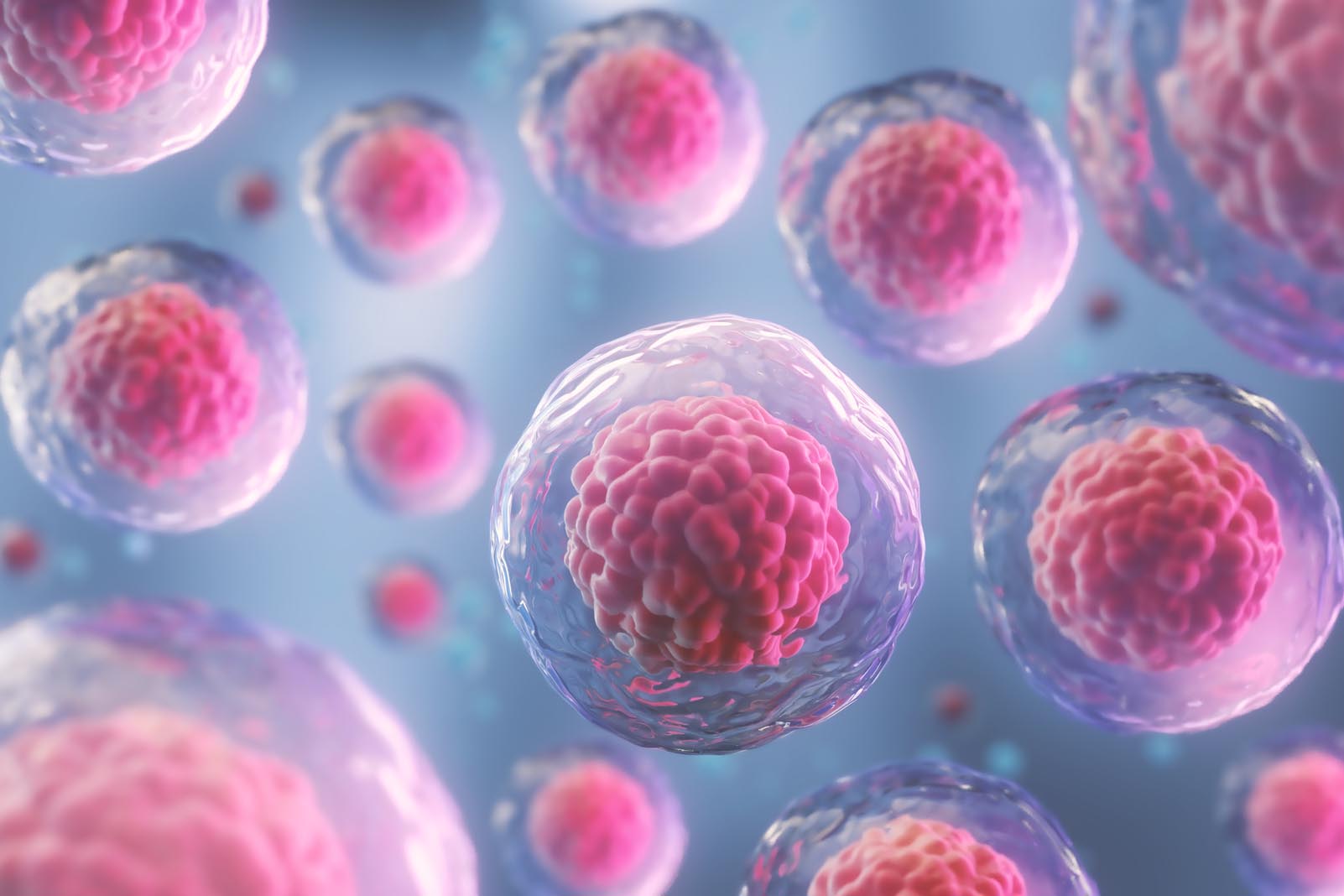-
What is already known on this topic
The gut microbiota influences human health and disease, mainly by modulating the host’s immune system. In people undergoing allogenic hematopoietic stem cell transplantation, alterations of the gut microbiota composition are associated with acute graft-versus-host disease (GvHD). -
What this research adds
This review examines the impact of gut microbes on host immunity in GvHD, and summarizes the evidence that supports a role of the gut microbiota in easing or preventing GvHD. -
Conclusions
As the mechanisms behind microbiota-host interaction become clearer, manipulating gut microbes could become a key strategy to improve treatment and avoid GvHD in people undergoing stem cell transplantation.
The gut microbiota has been linked to a variety of diseases – from obesity to neurodevelopmental disorders. Gut microbes interact with the host in several ways, mainly by modulating its immune system. This interaction could impair the clinical outcome of allogenic stem cell transplantation (allo-HSCT), which is the only therapy for some hematological diseases.
In 40-50% of people that undergo allo-HSCT, changes in the gut microbiota composition are linked to acute graft-versus-host disease (GvHD). GvHD causes inflammation of organs such as liver and lungs, resulting in up to 30% mortality.
In this review, published in Journal of Innate Immunity, Fozia Noor and her colleagues at the University of Luxembourg in Belvaux examine the relationship between the gut microbiota, host immunity, and GvHD, and present the experimental evidence that supports a role of gut microbes in alleviating or even preventing GvHD.
Microbiota-immune system interaction
The relationship between gut microbes and the host is regulated by the intestinal barrier, the cellular immunity, and the presence of a diverse microbiota.
Intestinal epithelial cells and immune cells express receptors that recognize microbe-associated molecular patterns. When these receptors are activated, they stimulate the induction of T regulatory (Treg) cells, which create a “tolerant” gut environment towards resident bacteria. Some gut bacteria produce short chain fatty acids such as butyrate and acetate, which exert anti-inflammatory effects on immune cells.
What’s more, the bacteria that interact closely with intestinal epithelial cells can stimulate the differentiation of T helper cells that secrete of pro-inflammatory cytokines, thus protecting the host against gastrointestinal pathogens.
Stem cell transplantation and GvHD
Before receiving allo-HSCT, people with hematological diseases undergo radiation and chemotherapy, which damage the gut epithelia. A disrupted intestinal barrier allows microbes to enter the bloodstream and cause inflammation, bloodstream infections, and sepsis. To prevent infections, patients are given broad-spectrum antibiotics, which alter the gut microbiota composition and result in an increase in antibiotic-resistant bacteria. Studies have linked antibiotic treatment to a higher risk of opportunistic infections and GvHD. In particular:
- Both mortality and incidence of GvHD are higher in allo-HSCT recipients who developed antibiotic-resistant infections
- People undergoing allo-HSCT show a dramatic loss of bacterial diversity, which is more conspicuous in those who developed GvHD
- At the onset of GvHD, the abundance of Enterococcus spp. increases, followed by a bloodstream infection with vancomycin-resistant Enterococci and a decrease in the abundance of Clostridiales
- Acute GvHD is associated with a decrease in intestinal cells that produce anti-microbial peptides
Modulating the gut microbiota
Several studies suggest that modulating gut microbes can ease or even prevent GvHD. Known modulators of the gut microbiota are antibiotics, probiotics, prebiotics, and fecal microbiota transplants:
- Broad-spectrum antibiotics are associated with GvHD, so the use of drugs that target specific pathogens and avoid the emergence of antibiotic-resistance could be a viable strategy to prevent GvHD. For example, about 30% of those undergoing allo-HSCT develop infections from Clostridium difficile, an opportunistic microbe that colonizes the gut when the resident Clostridiales are depleted by broad-spectrum antibiotics. Monitoring the presence of resident Clostridiales could help to decide whether to continue the antibiotic treatment or start another therapy.
- Some probiotics confer resistance to pathogens by occupying intestinal niches, competing for nutrients, or stimulating the host’s immune system. For instance, Barnesiella has been shown to protect against vancomycin-resistant Enterococci infections.
- The gut microbiota is highly influenced by diet, in particular by prebiotics (indigestible carbohydrates). By fermenting prebiotics, gut microbes produce short chain fatty acids, which trigger the induction of Tregs and the secretion of anti-inflammatory cytokines. For example, butyrate has been shown to restore the integrity of the intestinal barrier and alleviate GvHD in mice.
- Fecal microbiota transplant (FMT) is becoming a mainstream therapy for some diseases, including recurrent C. difficile infections. FMT has also proved effective in alleviating the symptoms of GvHD in allo-HSCT patients, but there are concerns that it could cause further infections in immuno-suppressed people.
Opportunities and challenges
The interaction between the gut microbiota and the host varies from one individual to another. That’s why some people develop GvHD while others don’t. Changes in individual microbiota composition, such as a loss of diversity, could be investigated using microbial profiling, which opens new perspectives for personalized medicine.
Microbial profiling includes techniques such as 16S rRNA sequencing and metagenomics shotgun sequencing. Although both techniques have contributed to advance microbiome research, they are too expensive, time-consuming, and complex to be routinely applied in the clinic. Another limitation of these techniques is that they provide the relative abundance of microbes, but not the total microbiota levels.
Species-specific qPCR could be a rapid, inexpensive method to gather information on specific microbial communities, but the technique doesn’t give an overview of the entire gut microbiota.
Bacterial metabolites could be used as biomarkers to monitor the gut microbiota health and composition. Urine metabolomics is a non-invasive way to identify such metabolites. For example, studies have shown that indoxyl-sulfate is associated with the abundance of resident Clostridiales, and low concentration of this metabolite correlated with poor GvHD outcome. However, more research is need to understand the role of microbial metabolites in GvHD.
A recent study applied high-throughput culture techniques to characterize the gut microbiota composition using mass spectrometry, identifying more than 32,000 colonies in human stools. But the technique misses the microbes that can’t be grown in the lab.
Finally, in vitro systems such as organoids could help to understand the relationship between microbes and human gut cells.
Conclusions
As scientists unravel the mechanisms behind microbiota-host interaction, gut microbes will likely play a key role in easing or even preventing GvHD in people who undergo allo-HSCT. The authors speculate that, in the future, manipulating the microbiota and the gut immune system will become a standard tool to improve treatment and avoid GvHD in allo-HSCT patients.









